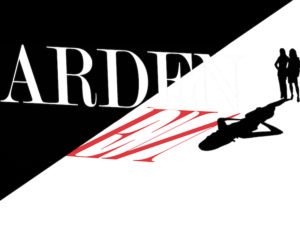On Writing From Source Material
Christopher Dole grew up listening to Mercury Theater on the Air, Prairie Home Companion, and the Star Wars NPR adaptations. Then he got way too into Shakespeare in college. Subsequently, he worked in literary management and script development. Now he’s the co-creator of Arden, a rom-com/workplace com-fake true crime show, out now. Give it a listen!
A few years ago, I was doing some freelance work for a self-publishing company. This particular company offered a service to its clients: for a certain extra fee, they would provide coverage of how to turn your novel into a movie. And whenever someone purchased that service, the novel would get passed on to me.
Now, I’m not here today to pass judgment on the material I read. Quality is, after all, in the eye of the beholder. But, as a young writer, it was a pretty remarkable and fascinating object lesson: take these books – some of them over a thousand pages long – and really, really sit back and think about it. What is the actual story. What is genuinely necessary.
And what I came back to again and again and again is one simple question: what do you, the adapter – respond to emotionally? That’s it. That’s where you start. Hone in on the thing that you connect to in any piece of art, and then try to understand why.
So from that initial question, you then build out to the following: What captures your imagination about this particular work? Why does it do so? How do you bring that out? Figure out that understanding, gain that knowledge, answer those questions, and you can adapt anything, from The Cat in the Hat to Gravity’s Rainbow.
Let’s step back for a moment to turn to the show I work on. Arden, a fake true crime podcast (season one available now wherever fine podcasts are downloaded) is very, very loosely drawn from the plays of Shakespeare. Essentially, our two main characters are inspired by Beatrice and Benedick from Much Ado About Nothing – two great intellects who are totally in love and yet cannot stop exasperating each other. And each new case is based on a different play – it’s a little spoilery to say which play Season One is based on, but I can tell you the current season we’re working on is based on Hamlet. Yes, it’s more spoilery to say which one Season One is based on than Season Two. No, I will not explain why.
When we work on Arden, we are working from source material that has been mined again and again and again, ad infinitum, driven into the ground, beaten to death, resurrected, and then beaten to death again. The only new thing we can bring to it is, therefore, the answers to those questions. We draw from half-forgotten high school English class memories, reminiscences of disastrous college productions, re-readings over the years, productions and films, and we ask ourselves: what is the thing that resonates with us about these stories, here and now? If we’re all our own Hamlet – and we very much are – then who is that Hamlet?
Since we are a team, we also balance out our institutional knowledge of the plays – while one member may perhaps read in-depth, another will simply go off their knowledge from years ago. This gives us need some much needed distance, to be able to step back and say “I don’t need to replicate this. I can’t fit it all in. So I’m going to stick to what matters.”
We have to free ourselves from certain touchstones – as true if you’re adapting Shakespeare as adapting Marvel Comics as adapting that short story you dug in ninth grade. The more you read of Shakespeare, the more you realize how much his works have influenced our very language. Since we will absolutely never reveal whether or not Shakespeare exists in the Arden Universe, we have to wholly divorce ourselves of certain sayings, of quotes, of phrases that in our daily lives are so commonplace as to be cliche. We don’t necessarily have to hit every beat (for instance, Season One’s “play” has a major character – arguably the third lead of the play – not really play a major role at all. We flirted with several possibilities for who that character could be over the course of the season, and it’s kinda revealed who they were after the fact, but they’re certainly not a focus). What we must do instead is replicate the feel, the emotional journey – and then tell our own story.
Let’s think about what adaptation actually means. It’s a scientific term first and foremost, a process of an organism changing to better fit its environment. When we change the medium of a work, we are following that principle. When we bring a hundreds-year-old work to modern times, we are following that principle. Everything you’re doing in the process of working from source material is helping the parts you care about survive.
At the end of the day, the original work will survive. Nothing you do will damage it, unless you’re actively tracking down every single copy of the original work and burning it. You’re not recreating it either. That’s what photocopiers are for. What you’re doing is looking at the original work, and then telling the world, “This is what I took away from it. This is what matters to me.” And through that understanding, and that process, the work becomes your own.


